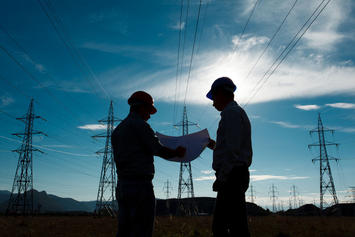
Most of the world’s population is already living without the products and fuels from petroleum, while the healthier and wealthier countries are focusing efforts to reduce their emissions from the use of fossil fuels, natural gas, and coal with extensive subsidies to accelerate their countries intermittent electricity from wind and solar renewables. Before jumping too quickly into the proverbial snake pit of the “green” religious movement, greenies should take time to answer: How we can maintain our lifestyles and economies without regressing backwards to what the world looked like before the 1900’s?
It’s almost impossible to understand that almost half the world — over three billion people — live on less than $2.50 a day. Today, across southern Asia, portions of Europe and parts of Africa and Australia, there are families attempting to live on virtually nothing.
A complex trade-offs associated with policy choices of moving too quickly into the GND is that abandoning fossil fuels will further deprive and/or delay the 6 billion in this world living on less than $10 a day, from access to the 6,000 products we enjoy in the wealthy and healthy countries that are all made from oil derivatives, most of which did not even exist in the developed countries before the 1900’s.
For your viewing pleasure, a chart of Life Without Oil, and a short YouTube video of Life Without Oil, i.e., not as simple as one may think. It may be time to believe in the undisputable science. Renewables can only generate electricity, and intermittent electricity at best. The undisputable science is that renewables CANNOT manufacture any of the oil derivatives that are the basis of the thousands of products that are the foundation of societies and economies around the world.
The trade-off to eliminate fossil fuels too quickly is allowing 11 million children in the world dying every year from preventable causes of diarrhea, malaria, neonatal infection, pneumonia, preterm delivery, or lack of oxygen at birth. Those children in poor countries still lack purified drinking water, sewage sanitation, adequate nutrition, reliable electricity (or any at all), adequate health care, and the infrastructures and products we take for granted that are all based on deep earth minerals and fuels. And by the way, adults in those poor countries barely live past 40 years of age.
The focus should be toward sharing all those products for which we have yet to discover clones or generics for almost 200 years, with underdeveloped countries so they can enjoy similar lifestyles enjoyed by those in the wealthy and healthy countries. The wealthier developed countries also have access to heating, air conditioning, and insulation that has virtually eliminated weather related deaths.
The current passion to convert into a world with intermittent electricity is oblivious to the unintended consequences of a world without fossil fuels. The signatories to the green movement have failed to imagine how life was without that industry that did not exist before 1900 when we had, NO medications and medical equipment, NO vaccines, NO water filtration systems, NO sanitation systems, NO fertilizers to help feed billions, NO pesticides to control locusts and other pests, NO communications systems, including cell phones, computers, and I Pads, NO vehicles, NO airlines that now move 4 billion people around the world, NO cruise ships that now move 25 million passengers around the world, NO merchant ships that are now moving billions of dollars of products monthly throughout the world, NO tires for vehicles, and NO asphalt for roads, and NO space program. Looking back just a few short centuries, we have come a long way since the pioneer days. Climate change is important, but so is economic survivability.
Read the rest of this piece at CFACT.
Ron Stein is an engineer who, drawing upon 25 years of project management and business development experience, launched PTS Advance in 1995. He is an author, engineer, and energy expert who writes frequently on issues of energy and economics.












